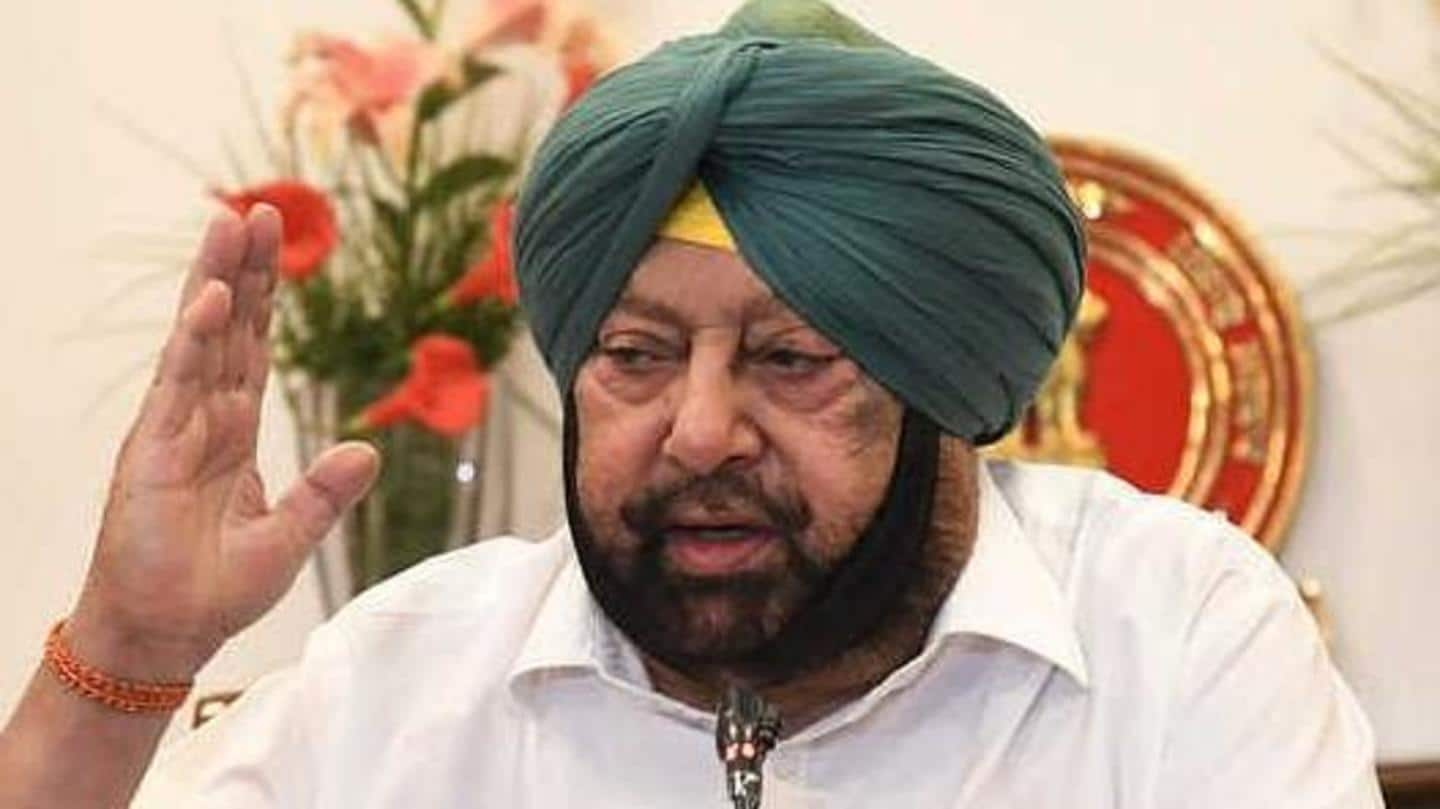
Foundation stone of Jallianwala Bagh Centenary Memorial park laid
What's the story
Punjab Chief Minister Captain Amarinder Singh on Monday virtually laid the foundation stone of the Jallianwala Bagh Centenary Memorial park at Amritsar, dedicated to unsung heroes of the massacre.
He paid an emotional tribute to the heroes of the Jallianwala Bagh massacre and to their families by reciting a poem.
The Jallianwala Bagh is located nearly 6 kilometers away from Memorial park.
Quote
'The Memorial will stand out as remembrance for future generations'
"The Jallianwala Bagh Centenary Memorial Park, to come up over 4,490 square meters at Amrit Anand Park in Ranjit Avenue, Amritsar, will stand out as a remembrance for the future generations," Singh said.
Memorial
Memorial to have soil brought by kin of martyrs, panchayats
To be built at a cost of Rs. 3.52 crore, the memorial will have soil brought by the kin of martyrs or panchayats/sarpanches/councilors.
Remembering the martyrs who sacrificed their lives for India's independence, Singh slammed those criticizing the State Government for setting up this memorial and said every Punjabi has the right to remember the unparalleled tragedy that paved way for the freedom struggle.
Information
Senior BJP leader has dubbed it a 'political move'
However, senior BJP leader and Rajya Sabha MP Shwait Malik had raised concern over erecting a separate memorial and dubbed it a "political move" of state Congress. Malik had accused the Congress of failing to contribute toward making the original historical site an ideal place.
Literary festival
Jallianwala Bagh chair and literary festival announced by CM
The Chief Minister announced a Jallianwala Bagh Chair at the Guru Nanak Dev University (GNDU) and a literary festival dedicated to the memory of those who lost their lives in one of the world's biggest humanitarian tragedies, as per an official statement.
"The sky frequents daily to weep here, the arrows still sting in Punjab's heart," Singh read from literary historian Rakshanda Jalil's poem.
Deaths
Exact number of deaths in the massacre still not known
The Chief Minister also noted that the exact number of deaths in the massacre was still not known.
Therefore, he has asked the Tourism and Cultural Affairs Minister Charanjit Singh Channi to ensure that the research into the data is completed so that the exact number can be ascertained and small memorials can also be built in their villages.
Information
Dyer had cited 200-300 of the 5,000 people gathered died
Pointing out that Colonel Reginald Dyer had cited the figure of 200-300 deaths of the 5,000 people he said had gathered there, Singh said, "Gandhi ji had put the figure at 1,500, of which the names of only 492 martyrs were currently available."
Kala Pani
Memorials announced for Punjabis who were sentenced to Kala Pani
Meanwhile, recalling his visit to the Cellular Jail in Andaman and Nicobar Islands, referred to as Kala Pani, Singh said, "There were many names of Punjabis which nobody is aware of, and directed Channi to also get the information researched and compiled."
He announced that the government would also build memorials for them in Punjab.
Information
The massacre took place in Amritsar in April 1919
The massacre took place at Jallianwala Bagh in Amritsar during the Baisakhi festival in April 1919 when the British Indian Army under the command of Colonel Dyer opened fire at a crowd staging a pro-independence demonstration, leaving hundreds dead.